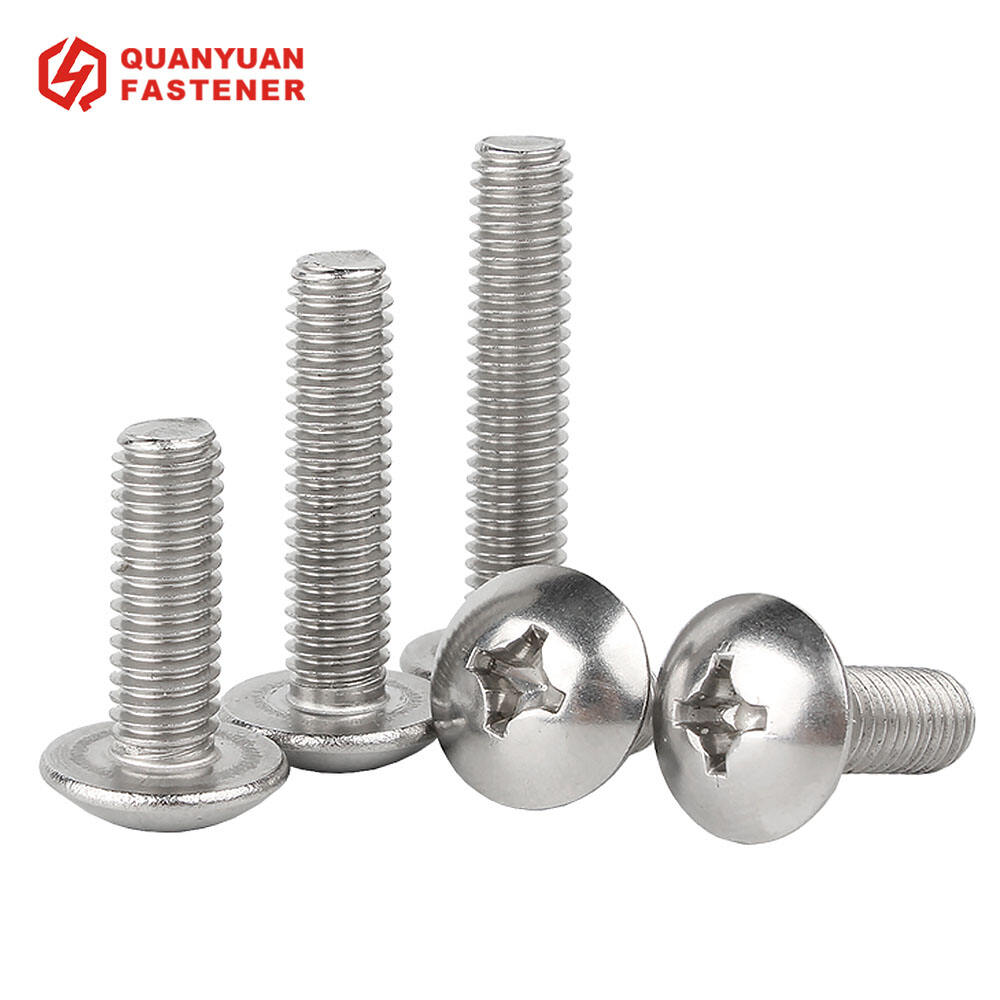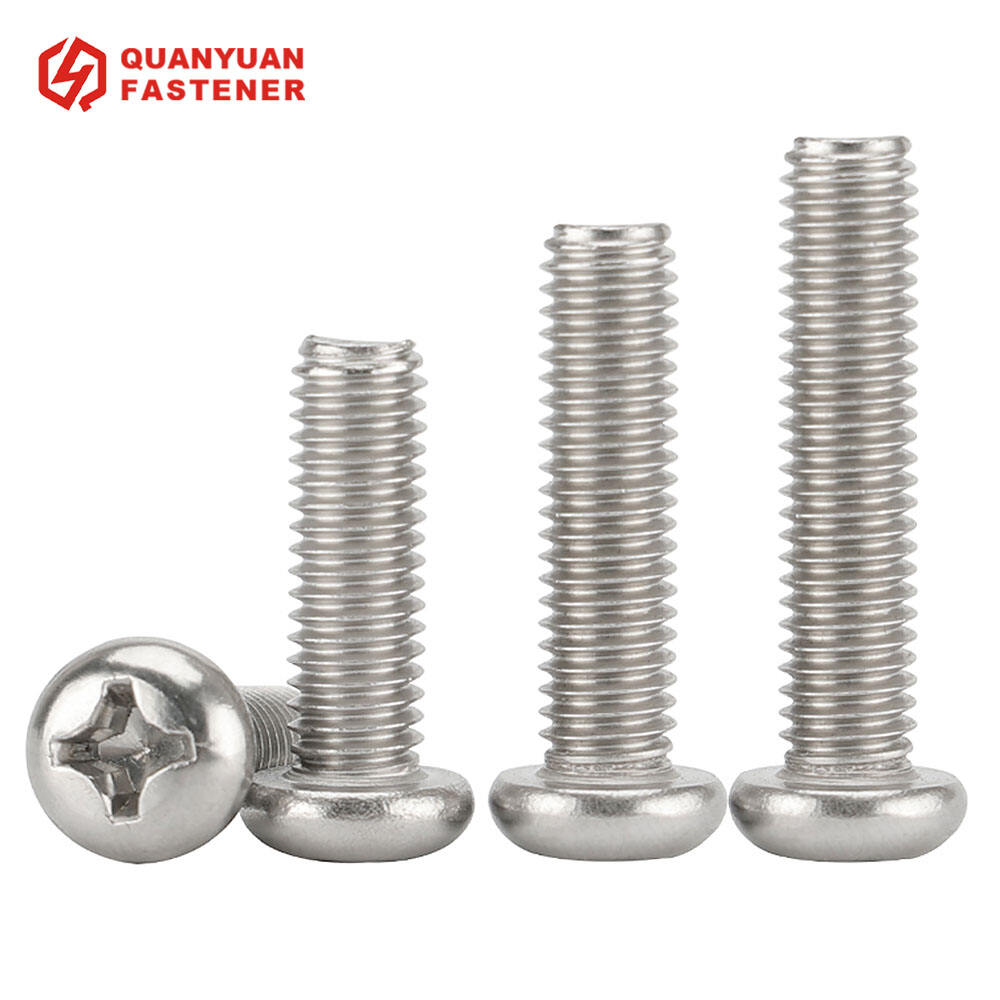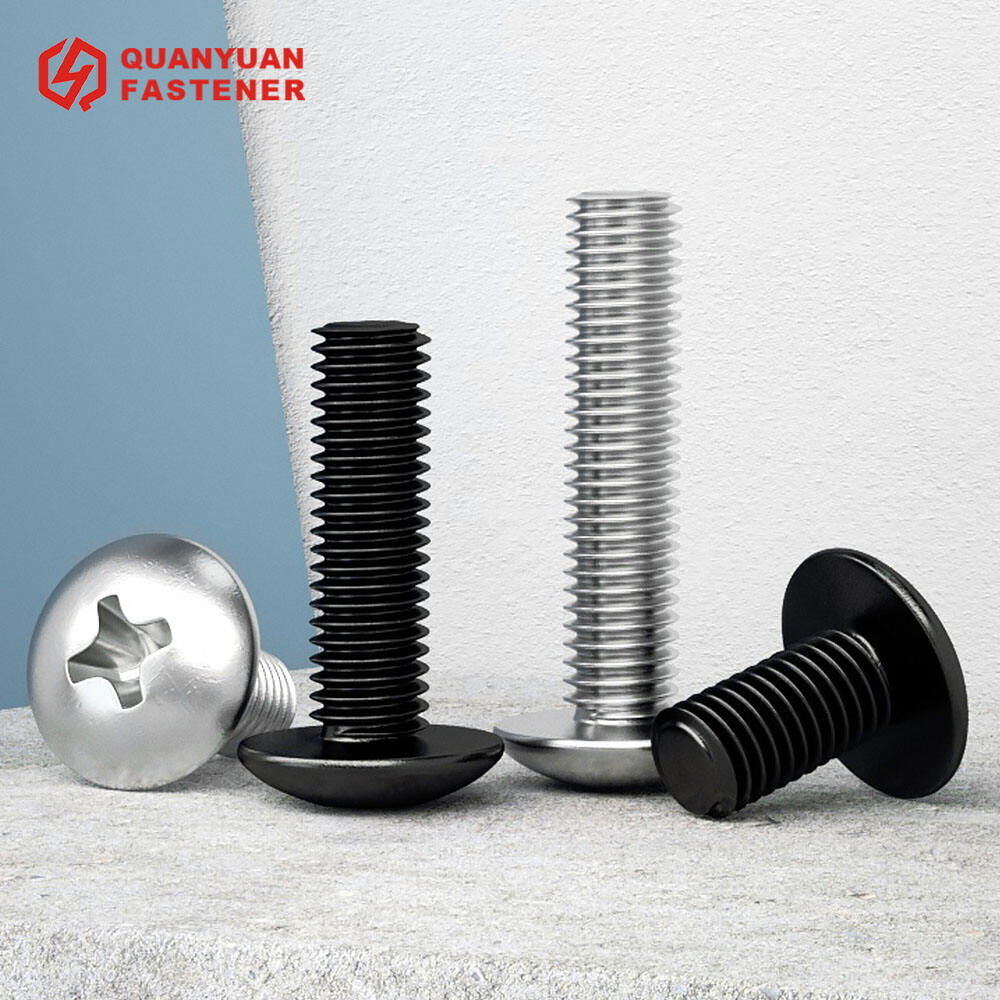A gépcsavarok azok a rögzítők, amelyek kulyszerű szerepet játszanak számos ipari és kereskedelmi alkalmazásban, hogy csempésen összekapcsolják a dolgokat. A lyuk fanjában ezek a csavarok könnyedén alkalmazhatók különböző alakzatokra és méretekre, ami nagyobb rugalmasságot biztosít sokféle méretezési munka során. Gyakrabban használják az építészetben, az elektronikában és az autóiparban... olyan területeken, amelyek nagyterhelésű felhasználást igényelnek, hogy több nyomás alatt is működjenek. Itt, ebben a részletes útmutatóban, megismerheti a 10 leggyakrabban használt típusú gépcsavart, amelyekkel megismerkednie kell, ha önállóan vagy szakemberrént dolgozik. Ezenkívül megvitatjuk, hogy miért érdemes megismerkedni a rostaléktalan acélból készült gépcsavarral annak érdekében, hogy kerülje el a költséges hibákat a jövőben, valamint hogyan kell helyesen beilleszteni egy gépcsavart, és mi a gyakori hibák, amelyeket mind a kezdők, mind pedig a tapasztaltabb DIY entuziasták figyelembe kell venniük ezekkel a hasznos rögzítőkkel való munka során.
Kerek fejű gépcsavarok: Kerek tetejükkel és sík végükkel a kerek fejű gépcsavarok különösen alkalmasak olyan alkalmazásokban, ahol fontos a kinézet vagy amikor a csavarodat a anyagoddal egyenlőre kell tartani.
Pánzsi fejű gépcsavarok: Ezek a csavarok középponti típusú bolygók között számítanak, amelyeket gépekben és elektronikában használnak, sík vagy kicsit kerek tetejük van (ahogy jobbra látható) és sokszor találkozhatunk velük a házi fénykapcsoló rögzítéseiben is.
Sík fejű gépcsavarok: Ezek a csavarok countersunk fejjel rendelkeznek, amelyek egyik változatai közé tartoznak: Szabványos, Hiányzó és Tengelyes, amelyek a munkafelülettel egyenlő maradva ellensúlyt adnak a forgás százalékának.
Fogaskereszt fejű gépcsavarok: Ellenben a tradiós csavarokkal, a fogaskereszt fejű azt jelenti, hogy henger alakú az, belső hatszögessel, amely illeszkedik az Allen kulcsokhoz; ezért őket Allen bolygóknak is nevezik.
Gombfejű gépcsavarok: A gombfejű csavarok népszerűek olyan alkalmazásokban, ahol alacsony profilra van szükség, és ahol a csavar nem fedheti fel a munkafelületet.
- Truss fejű gépcsavar: Ezen típusú csavar alacsony-profilú kupola-színvonalú fejjel rendelkezik, amely jó terhelési felületet biztosít.
Hatlapos gépcsavarok - Gépben és építési projektekben használatosak, hexagonális fejjel rendelkeznek, amelyet nyitott végű szegevel vagy tárcsával lehet fordítani.
Fillister fejű gépcsavarok: Ezek a csavarok kerek tetejűek egy szélesebb terhelési felülettel, és haditestvényes és repülészeti környezetekben használni szokták őket.
Ellipszisfejű gépcsavarok: Ezek a csavarok ellipszis alakú fejjel rendelkeznek, mint a pánnafejűek, és akkor tervezve lettek, hogyha a csavar nem emelkedhet fel a felület fölött vagy illeszkedjen a felszínnel.
Rögzítőfejű gépcsavar: A rögzítőfejű csavarok kis flánggel rendelkeznek az aljukon, hogy megakadályozzák a túlzott feszítést és a kiöblözést meglévő összefúró lyukakba telepítésekor.

Ha új a gépcsavak világában, a projekthez való megfelelő kiválasztása egy kicsit árvíthetőnek tűnhet. Döntés meghozatalakor fontolja meg a következőket:
Méret: A gépcsavaknak számos szabványos mérete van, és fontos a helyes hosszúság kiválasztása attól függően, hogy milyen anyagot fogsz áthaladni.
Méret: A csavar mérete egyenlő kell legyen a lyukkal és az anyaggal, amibe bekerül, így biztosítva a jó illeszkedést, valamint elkerülve a túl szélcsavas csavarak töretését.
Szárásmérés: Illesztse párosítani a csavar szárást a nyúlakkal vagy a száraz lyukkal. Az UNC, UNF és metrikus szárásmértékek közül nevezhetők ki néhány.
Fejkijellemző: A fej stílusára és méretére figyeljen, hogy illeszkedjen a projekt alkalmazásaira, például a kinézet, a forgatósugarak követelményei vagy a hozzáférhetőség.

Gépcsavak Némesebb és ismertebb stainless okokból:
Korrozión ellenálló, ezért használható nehéz környezetekben vagy sok nedvességgel járó helyeken.
Erősség: A rostmentes acél képes magas nyomásra és terhelésre, ezért erős anyag.
Estétikai szempontból a rostmentes acél egy szép fényes csillanatot kínál, amikor befejezett, és alkalmas olyan alkalmazásokra, amelyek erre szükségesek.
Hogyan kell gépi csavarokat bemontani - Lépésről lépésig útmutató
Pontosság és gondoskodás szükséges a gépi csavarok montázához. Íme... Apache Spark telepítési utasítások letöltése
Használja a megfelelő csavart: Válasszon elég hosszú Pax-Drive csavart, amely illeszkedik az anyag és a lyuk méretéhez.
Illessze be a csavart: A csavart beszúrva fordítsa jobbra csavaróval, amíg nem feszül.
Lépés 5: Szteljesse be a csavart - Torzs forgató vagy akár egy konvencionális csavaró is használható a csavar feszítéséhez a kívánt torzióig.
Ellenőrizze a csavart: Győződjön meg arról, hogy a csavar helyesen van beillesztve és feszül, hogy biztosan tartson az anyagon.

Kerülje el ezeket a gyakori hibákat a gépi csavarokkal való munkakor:
Rossz méretű/típusú csavarak, amelyek gyenge fogást eredményezhetnek vagy akár károsíthatják az anyagot.
Ne annak ellenkezője, hanem a szárnyei túlzott feszítése, ami csavartalpok kifúródásához vagy anyag-kárhoz vezethet.
A nyomatékos görcs használata hiánya, ami vagy túl erős, vagy túl gyenge feszítéshez vezethet.
A helytelen anyag használata, ami korrodálni fog vagy nem elegendő erősséggel tart.
Több ipari területen és alkalmazásokban használni, ezért a gépi csavarok kulcsfontosságú komponensek. Reméljük, többet tanultál a gépi csavarakról, azok típusairól, előnyeikről és arról, hogyan kell megfelelően beállítani őket, valamint hogyogyan kerülheted el a egyszerű de gyakori hibákat. Válasszoképlegényesen, használd őket ésszerűen, és a projektek növekedni fognak a gépi csavarakkal együtt!
A Quanyuan gépcsavarok nemcsak minőségi termékeket kínálnak, hanem technikai támogatást is nyújtanak együtt az utánugrós segítséggel. Az utánugrós szolgáltatásunk olyan tervezésű, hogy gyors technikai támogatást és megoldásokat nyújtson vásárlóinknak. Minden termékproblémára gyors és hatékonyan reagálunk.
A Quanyuan gyártó csavarok legújabb termelési berendezéssel és folyamatokkal készíti el a termékeket, amelyek szigorúan megfelelnek az nemzetközi szabványoknak és az ipari szabványoknak. Szintén szigorúan szűrődnek a nyersanyagok, hogy a bűtorök erőssége, auszthatósága, rostérzékenysége és más tulajdonságai megfeleljenek a követelményeknek.
A Quanyuan Fastener kínál gépi csavar-megoldásokat különböző alkalmazásokhoz. A speciális fedélzetelemek, anyagok vagy tervek gyártásában való specializálódás lehetővé teszi a gyártók számára, hogy kielégítsék a speciális piacok igényeit, és erős kapcsolatot építsenek fel az ügyfelekkel.
a gépi csavarok tömeges termelésre és gyors szállításra képesek. A gyártási technológia fejlődése, beleértve az automatizált termelési sorokat és a pontos vágást, lehetővé teszi a csavar-gyártóknak, hogy minőségi csavart gyártsanak rövid idő alatt.